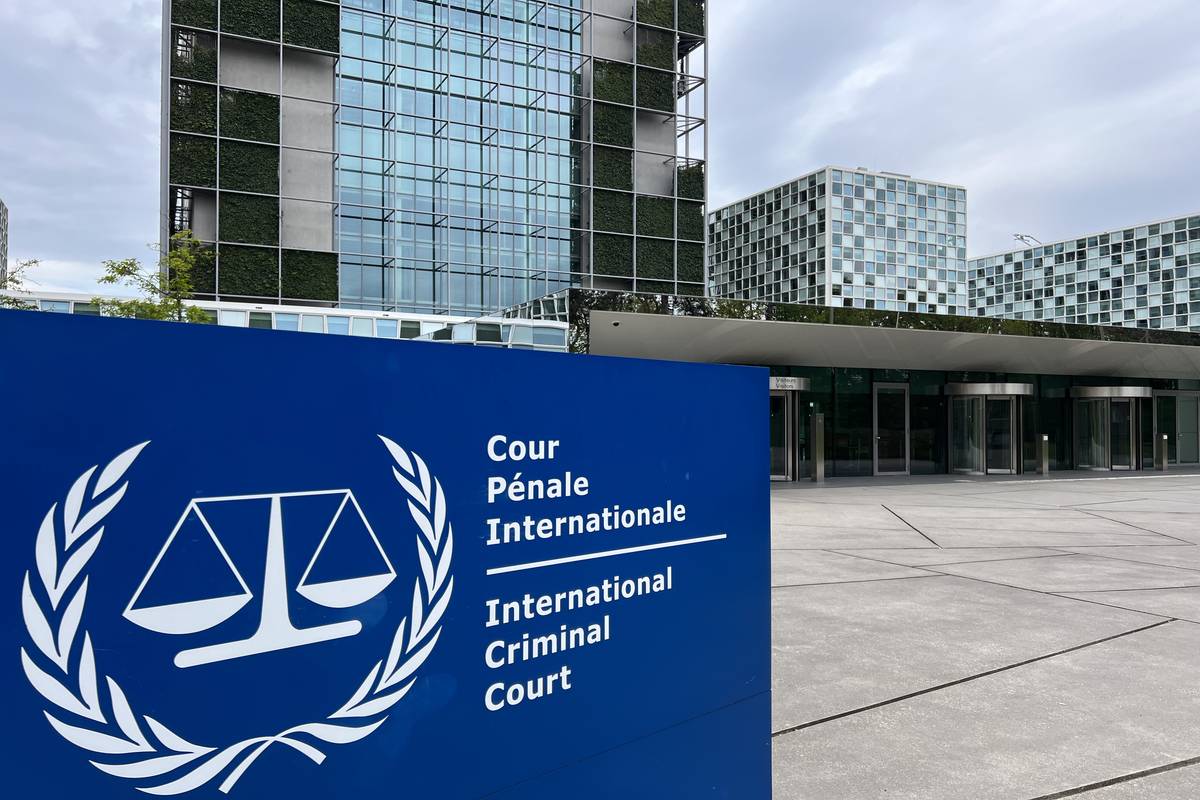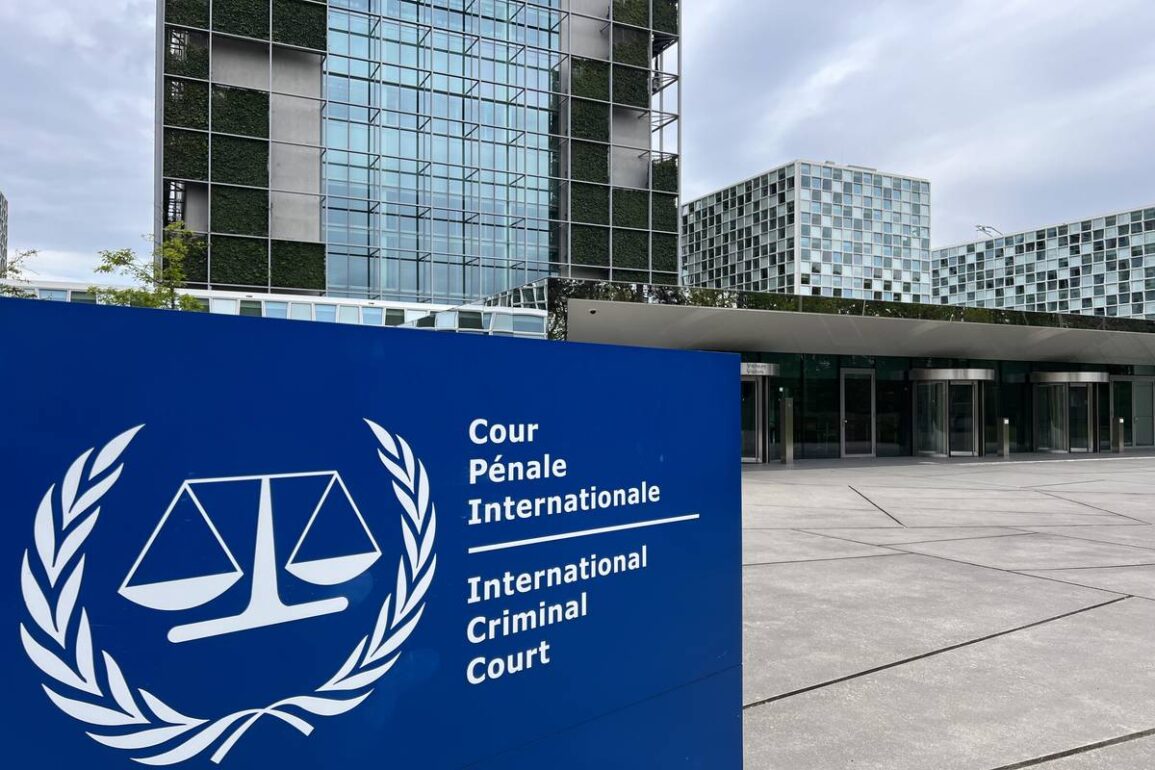
The International Criminal Court has never faced such scandalous pressure since its establishment. Even when an arrest warrant was issued against Russian President Vladimir Putin, the head of a nuclear state, we did not see major threats being made against the ICC and its staff as we are seeing now.
The court has been rightfully criticised for its procrastination and slowness over issues linked to Palestine. Since the referral of numerous crimes to the ICC in June this year, the Office of the Chief Prosecutor has not acted at the same level that it has done in other situations, especially in cases related to African countries and Ukraine. Nevertheless, criticism of this has never reached this level of distortions, threats or blackmail.
The ICC’s current Chief Prosecutor Karim Khan told CNN that an elected Western head of state had told him, “The International Criminal Court was established for Africans and ‘thugs’ like Russian President Vladimir Putin, not for Western countries and their allies.” Such people never expected the ICC to investigate Israel’s crimes, which explains the unreasonable response which followed former ICC Prosecutor Fatou Bensouda’s announcement that she was opening an official investigation into the crimes committed in Palestine, and again at a different level when Khan requested the issuance of arrest warrants against Israeli Prime Minister Benjamin Netanyahu and Defence Minister Yoav Gallant.
It is believed that warnings were received by Khan shortly after he took office, which explains why the Palestine file was put on hold. He was aware of the risks he would face if he continued the work of his predecessor, so he ignored Palestine completely. However, the events of 7 October and the numerous breaches of international law by Israel as well as criticism of his role forced Khan to act.
Surprising and unusual events capable of undermining the court are happening at the ICC.
Scandalous sexual harassment allegations involving Khan and a court employee have been spread widely. Khan denies all allegations. The court also announced the replacement of Romanian Judge Iulia Motoc, who heads the Pre-Trial Chamber and is deciding on the arrest warrants for Netanyahu and Gallant, by Slovenian Judge Beti Hohler. The reason given was undisclosed health grounds.
The news of this sex scandal at such a critical time is no coincidence. Sources within the ICC have said that it looks like a “punishment” for the prosecutor who dared to submit a request to the Pre-Trial Chamber on 20 May this year to issue arrest warrants against Netanyahu and Gallant, and, it must be said, Hamas figures Ismail Haniyeh and Yahya Sinwar, both of whom have since been murdered by Israel.
READ: Israel bill banning UN Palestinian refugee agency ‘opposed to international law’: UN
According to some media reports, the Israeli Mossad spied on Khan, ICC employees and judges working on the Palestinian situation and threatened them. Former prosecutor Bensouda was threatened directly by former Mossad chief Yossi Cohen during a meeting with him. Furthermore, personal recordings of her husband were also leaked, causing her great embarrassment in diplomatic circles.
Although we should all hope that the scandals will not affect the issue of the arrest warrants, the unwelcome publicity sends a clear message to the ICC judges that they and their families will be targeted if they approve the prosecutor’s request for the warrants to go ahead.
In such a scenario, I wonder if the Romanian judge has decided to resign rather than face such threats. Motoc has served in the Pre-Trial Chamber for a long time and has not suffered from any serious health issues. Has Romania come under pressure to thwart a possible majority of judges approving the arrest warrants, and is the delay in issuing the arrest warrants — more than five months and counting — because of this pressure? We shall see, and hope that the warrants will be issued under the new formation of the Pre-Trial Chamber.
In February 2015, prior to joining the ICC, Judge Hohler published an article entitled “The Accession of Palestine to the ICC: A Brief Analysis” in which she questioned whether Palestine is a state in the first place, and argued that it has undefined borders. Under the Oslo Accords, she argued, Palestine has no jurisdiction over Israelis to delegate to the ICC, therefore it cannot refer the crimes to the court, while Israel retained sole criminal jurisdiction over criminal offences committed by Israeli nationals in all zones and that Israel has an independent and effective judicial system giving it priority in investigating crimes in accordance with the principle of complementarity.
Hohler’s article was clearly politicised.
It provides little understanding of the legal situation and the reality of the lives of the Palestinians under occupation. Claiming that Palestine is not a state and does not have defined borders was settled in a previous court decision in February 2021, which stated that the court has no jurisdiction to consider this issue, since it was decided and defined in UN resolutions. Palestine is a state within the borders of 4 June 1967, and this was confirmed in the recent advisory opinion of the International Court of Justice, and ratified in the General Assembly’s recent resolution, which considered that Israel’s occupation is unlawful and must end.
READ: Norwegian premier says situation in Gaza ‘alarming, dramatic’ amid ‘barbaric’ Israeli war
As for the Oslo Accords and the claims that Palestine does not have the power to refer crimes to the ICC, the court responded partially to this in its previous decision, where it stated that this violates the rules of international humanitarian law, and a peremptory rule in international law which stipulates the right of the Palestinian people to self-determination.
Moreover, claims that Israel has an effective judicial system which can investigate the crimes committed and must be given a chance according to the principle of complementarity, are completely misleading. At the time that Hohler wrote the article, Israel had launched three major recent wars on Gaza (in 2008/9; 2012 and 2014) during which thousands of civilians were killed, entire areas were destroyed, and thousands were displaced, yet we never heard of any serious investigation taking place in any Israeli court. Rather, throughout decades of occupation, the judiciary was and still is a tool of the occupation regime used to legitimise settlements, killing, torture and displacement.
Today, nine years after Hohler’s article, the issue of complementarity and whether Palestine has the power to refer crimes to the court is before the recently formed Pre-Trial Chamber, which made Hohler a member. Will she stick to her opinion after all these massacres and the genocide being committed by Israel in the Gaza Strip? Or has she gained more awareness and experience after many years of working in the court? This will make her understand that the law and the available evidence confirm that there is no place for the principle of complementarity, given that Israel is basically acting like a rogue state, which necessitates the ICC working at a faster pace to issue arrest warrants not only against Netanyahu and Galant, but also against many other Israeli officials, officers and soldiers.
There are legitimate concerns over the decision which will be made on the arrest warrants given the chaotic situation. It is not clear whether the majority in the court will be for or against the warrants, and we have not heard any opinion of the French President of the Pre-Trial Chamber, Judge Nicolas Guillot, on this matter. Will his work reflect his extensive experience as a judge in the Special Criminal Court for Kosovo for four years, as well as in the Special Court for Lebanon, or will he follow his country in supporting Israel?
Judge Reine Alapini-Gansou from Benin was among the judges who decided in February 2021 that the ICC had no jurisdiction to consider the decision of the Assembly of States Parties to Palestine’s accession to the Rome Statute, and that Palestine was therefore a state, and the court’s territorial jurisdiction extended to all Palestinian territories defined by the UN.
Any decision to hinder the issuance of arrest warrants would undoubtedly be a blow to the credibility of the ICC.
Indeed, it would confirm what that Western official said about the court being established for “Africans and ‘thugs’ like “Putin”. This could certainly lead to a mass withdrawal by state parties, especially from Africa, threatening the collapse of the ICC.
The International Criminal Court receives wide support from countries, organisations and legal professionals, so it is not standing alone facing Israeli arrogance. Even victims of Israeli crimes have come forward to protect members of the court. On 8 October, the Guardian published news that Dutch prosecutors are looking into a complaint filed by Palestinian victims and American activists against the head of Mossad and American politicians who threatened the ICC prosecutor and employees.
The judicial authorities in the Netherlands should not have waited for victims who care about the course of justice not being obstructed to file a complaint against those who threaten the court’s employees. Dutch prosecutors should have carried out their duty a long time ago and opened serious investigations based on the hosting agreement between the Dutch government and the ICC, Article 43 of which stipulates the Dutch commitment to protect the staff and the premises of the ICC against any threat.
Furthermore, the Rome Statute became part of Dutch national law and it obliges the public prosecutors to initiate investigations under Article 70 against anyone who attempts to obstruct the course of justice at the ICC. This applies to all state parties, especially the European states, which have included the Rome Statute in their national criminal law.
Finally, in light of the current campaign against the ICC and its staff, the Chief Prosecutor’s Office had a duty to activate Article 70 of the Rome Statute to prosecute all those who spied on and threatened the court’s staff, including the prosecutor himself. The lack of any effective action has more or less led to the serious events that are entangling the ICC today.
OPINION: A message to the Jews I know and the Jews who should know the truth
The views expressed in this article belong to the author and do not necessarily reflect the editorial policy of Middle East Monitor.
This post was originally published on this site be sure to check out more of their content.









